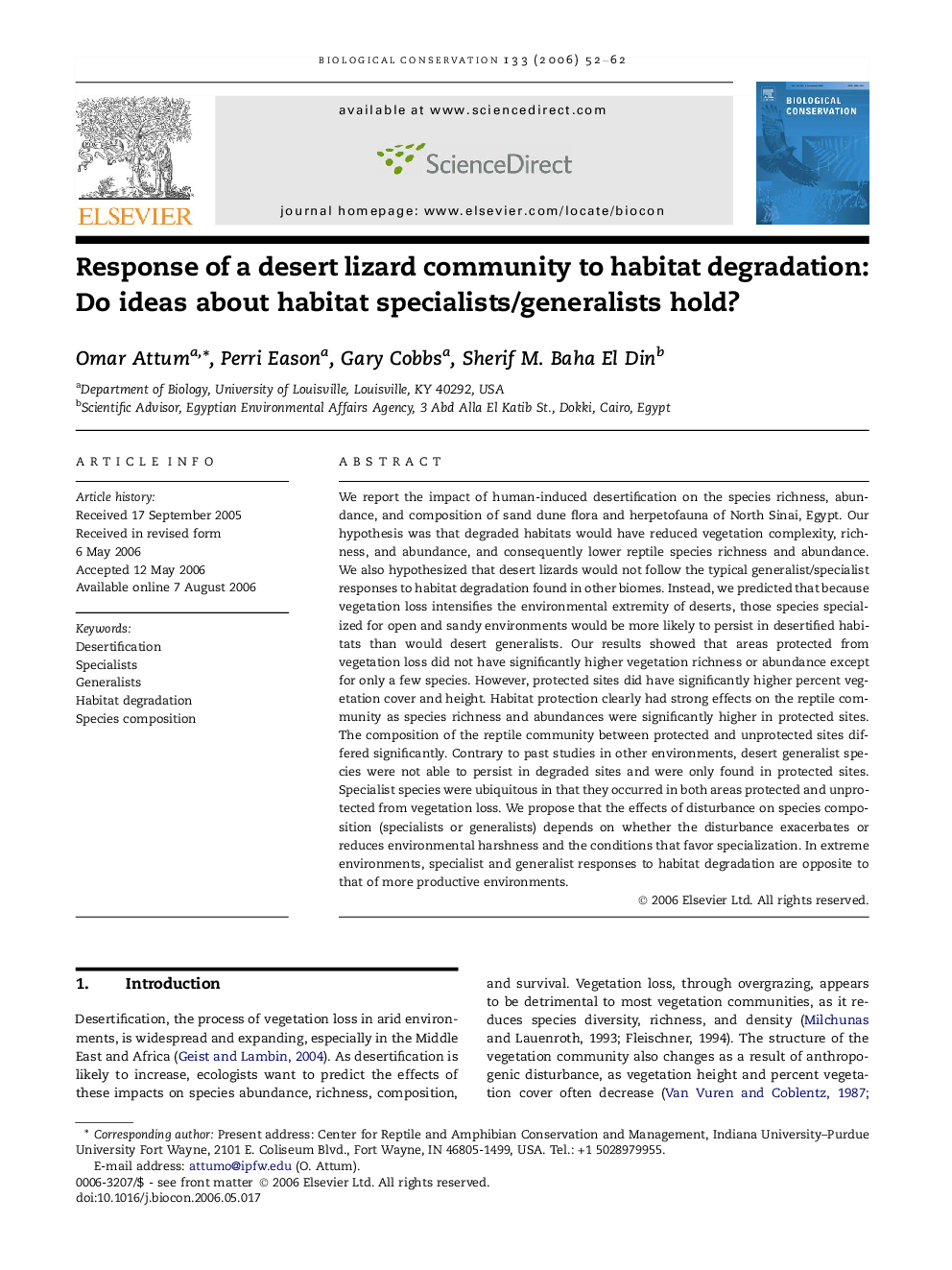| Article ID | Journal | Published Year | Pages | File Type |
|---|---|---|---|---|
| 4387374 | Biological Conservation | 2006 | 11 Pages |
We report the impact of human-induced desertification on the species richness, abundance, and composition of sand dune flora and herpetofauna of North Sinai, Egypt. Our hypothesis was that degraded habitats would have reduced vegetation complexity, richness, and abundance, and consequently lower reptile species richness and abundance. We also hypothesized that desert lizards would not follow the typical generalist/specialist responses to habitat degradation found in other biomes. Instead, we predicted that because vegetation loss intensifies the environmental extremity of deserts, those species specialized for open and sandy environments would be more likely to persist in desertified habitats than would desert generalists. Our results showed that areas protected from vegetation loss did not have significantly higher vegetation richness or abundance except for only a few species. However, protected sites did have significantly higher percent vegetation cover and height. Habitat protection clearly had strong effects on the reptile community as species richness and abundances were significantly higher in protected sites. The composition of the reptile community between protected and unprotected sites differed significantly. Contrary to past studies in other environments, desert generalist species were not able to persist in degraded sites and were only found in protected sites. Specialist species were ubiquitous in that they occurred in both areas protected and unprotected from vegetation loss. We propose that the effects of disturbance on species composition (specialists or generalists) depends on whether the disturbance exacerbates or reduces environmental harshness and the conditions that favor specialization. In extreme environments, specialist and generalist responses to habitat degradation are opposite to that of more productive environments.
